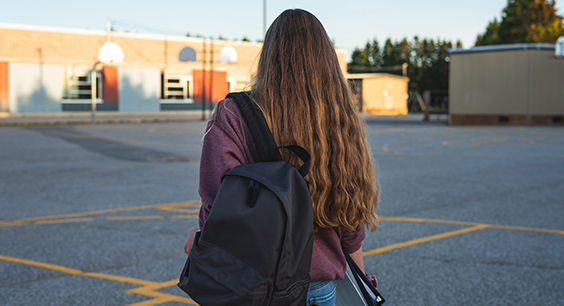Borderline personality disorder (BPD) is a complex mental health issue that emerges in early adulthood and can cause ongoing behavioural issues and feelings that result in decreased functioning and increased distress over time. Due to a lack of suitable early intervention programs CHN, ACT’s PHN commissioned the University of Canberra to develop and implement a program that focuses on early intervention for mood regulation in young people at high risk of BPD (aged 15-21 years).
The WOKE program utilises dialectical behavioural therapy (DBT) to teach young people skills and techniques which can then be effectively adapted to their environment to assist with reducing psychological distress, which are transferrable through all areas of their life.
An evaluation of the first four programs, run from September 2019 to June 2021, has showed that young people attending the program have significantly reduced their symptoms, distress, suicidal ideation and dysfunctional coping approaches. Young people who attended WOKE have reported that they achieve significant gains in their ability to regulate their moods, achieve goals and improve relationships.
The WOKE Program uses an innovative, sustainable and cost-effective workforce model using UC Master of Clinical Psychology students delivering the program as part of their second-year practicum placements, under clinical supervision. The students highly commended the program, training and clinical supervision and recommended that the WOKE Program become a permanent placement within the course. The students will now enter the workforce with much-needed skills to confidently work with young people with borderline symptoms, including self-harm and suicidal ideation.
Parents or family members are involved in the program and are invited to join their young person at the skills training group and are also offered separate parent therapy sessions. Parents reported that they felt valued and included in their young person’s treatment, which is often not the case in other programs. Some parents reported the program was ‘life changing’.
Over the last year, the program provided support to young people and family members through the delivery of 733 sessions (290 group sessions; 443 individual sessions). In response to COVID-19 lockdowns, online delivery was used where needed including the implementation of a virtual skills group and weekly individual telehealth sessions to review the skill.
A new initiative has also commenced with a specific focus on the engagement of the family members with great success. A new research measure examining the family environment, from the perspective of the young person and family, was piloted.
Client story
Working with and supporting parents is highly valued in the WOKE Program, as parents and carers are integral to their young person’s skill development and emotional wellbeing. This was illustrated by the positive changes made by Asha* (not their real name) and her parents throughout WOKE. Asha was referred experiencing frequent suicidal thoughts, panic attacks, and conflict with her parents and siblings, which contributed to high levels of stress and tension in their household. After participating in the program, Asha’s parents started responding to her panic and anger differently, with a focus on validation and working to find a middle path which honoured both parents’ and Asha’s perspectives during disagreements. Asha also started using distress tolerance skills and reaching out to her parents to communicate her feelings and ask for help instead of acting on suicidal thoughts. These changes were facilitated by Asha and her parents’ enthusiasm and commitment to practicing the skills in their interactions with each other, including coming together after a challenging situation to reflect on what skills they could each use to improve for next time. As a result, the relationship between Asha and her parents was strengthened, as did the parents’ relationships with their other children, who also benefitted from parents responding (in their words) “the WOKE way”.

